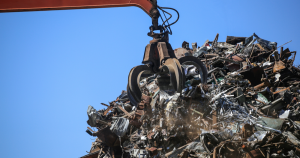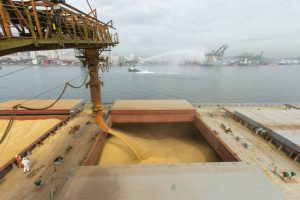Ukraine exported over 190 million tons of cargo via the “Lanes of Solidarity”

Over the past three years, Ukraine has exported over 190 million tons of cargo through the Lanes of Solidarity and imported over 86 million tons.
This was reported by the Ministry of Development.
On November 6, a High-Level Dialogue between Ukraine and the EU on key issues of cooperation in the field of transport and infrastructure was held in Uzhgorod. The Ukrainian delegation was headed by Deputy Prime Minister for the Reconstruction of Ukraine – Minister for Development of Communities and Territories of Ukraine Oleksiy Kuleba, while the European Union was represented by Magda Kopczynska, Director General of the Directorate for Mobility and Transport.
The meeting focused on the key results of cooperation in the field of transport, the presentation of the main priorities for the further development of communication between Ukraine and the European Union, and European integration priorities.
During the meeting, the parties discussed the results of the Lanes of Solidarity initiative to support Ukrainian exports and necessary imports. In particular, over the past three years, Ukraine has exported over 190 million tons of cargo through the Lanes of Solidarity, and imported over 86 million tons of goods: from humanitarian aid to construction materials needed to restore Ukraine. The volume of trade within the initiative is estimated at over 230 billion euros.
An important topic of the meeting was the extension of the Agreement on the Liberalization of Freight Transport between Ukraine and the EU until March 2027. Deputy Minister Serhiy Derkach noted that the Ministry of Development is already working on key acts to approximate standards in the field of transport. The roadmap for these changes has been agreed with the European Commission.
When considering the issue of the functioning of maritime transport, the need to ensure the safety of maritime transport and the functioning of the “maritime corridor” was emphasized. Deputy Minister Andriy Kashuba also emphasized the need to attract funding for the reconstruction of destroyed infrastructure, the purchase of equipment, and the training of specialists.
USM previously reported that almost 155 million tons of cargo have already passed through the maritime corridor





